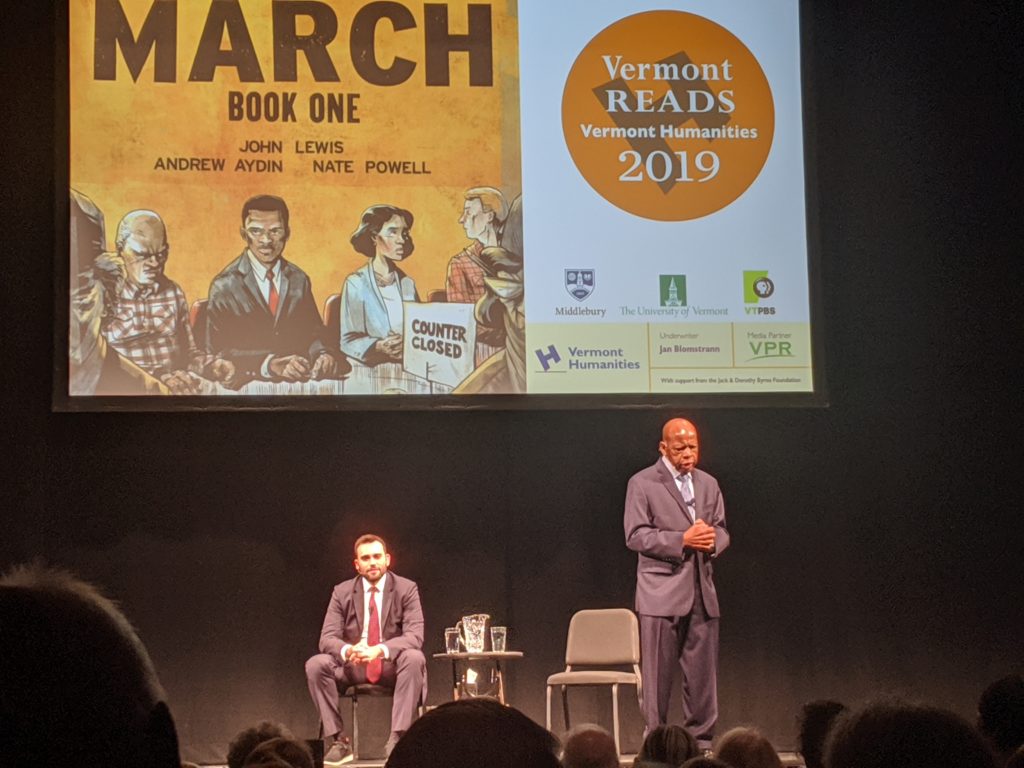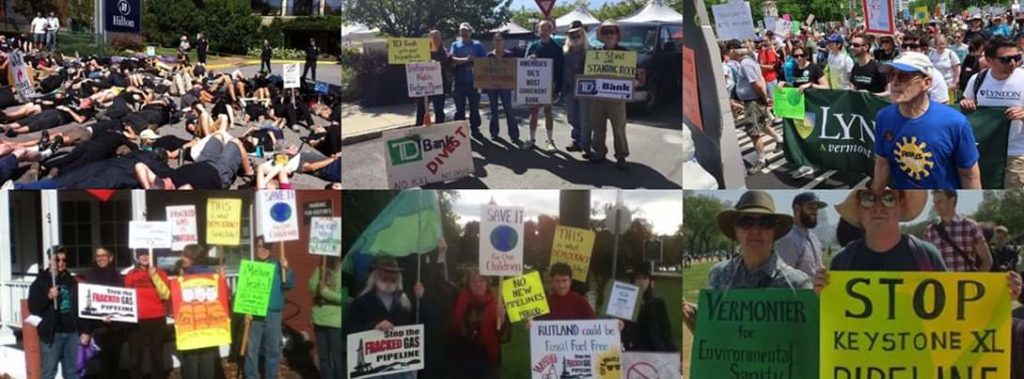Last Monday evening, I had the opportunity to be part of a full house at the Flynn Theater in Burlington, Vermont, where Congressman John Lewis was talking about his new graphic novel, March (specifically Book One, as it’s a trilogy).

If I recall correctly, the first time I truly learned about John Lewis was when I read a chapter that he wrote in the book Ignition: What You Can Do to Fight Global Warming and Spark a Movement. The one phrase that stuck with me from that chapter, and that he repeated at the Flynn, is that sometimes, you have to make “good trouble, necessary trouble.”
The “good trouble, necessary trouble” John Lewis has undertaken? Many instances of Non-Violent Direct Action. Perhaps the most known, was on the Edmund Pettis bridge in Selma, Alabama. “It was here that voting rights marchers [lead by John Lewis] were violently confronted by law enforcement personnel on March 7, 1965. The day became known as Bloody Sunday.”

I have participated on several occasions with what I would consider Non-Violent Direct action. On July 29, 2012, while New England governors and eastern Canadian premiers met at the waterfront Hilton Hotel to discuss energy policy, protestors demonstrated outside, voicing their opposition to a proposed pipeline across northern New England that would ship Tar Sands oil to Portland, Maine. We were all dressed in black, and lay down in the street, creating a human oil spill. On April 26, 2014, I participated in the #RejectAndProtect rally in Washington, D.C., calling on the government to reject the Keystone XL tar sands oil pipeline, and to protect Indigenous communities the pipeline was expected to be constructed through. On October 15, 2015, I joined members of the Rutland (VT) Area Climate Coalition standing on a street corner for a National Day of Climate Action, rallying in solidarity with friends nationwide. Days later, on October 24, 2015, I blocked the street in front of the Vermont Statehouse in Montpelier in response to Gov. Shumlin and the Public Service Board’s back room deals to influence the Vermont Gas pipeline review process. On April 29, 2017, I returned to the streets of D.C., this time with an estimated 200,000 others for the People’s Climate March. In September 2017, I demonstrated outside of TD Bank in Rutland, Vermont. TD Bank and Bank of America are two of 17 banks that have loaned Dakota Access LLC $2.5 billion to build the 1,100 mile Dakota Access pipeline, which is carrying fracked oil from the Bakken formation in North Dakota. Hundreds of people, mostly Native Americans, occupied an encampment for months to block construction of the pipeline under the Missouri River, the source of water for the Standing Rock Sioux tribe.
What “good trouble, necessary trouble” will you engage in when you encounter injustices in your own life?
Leave a Reply